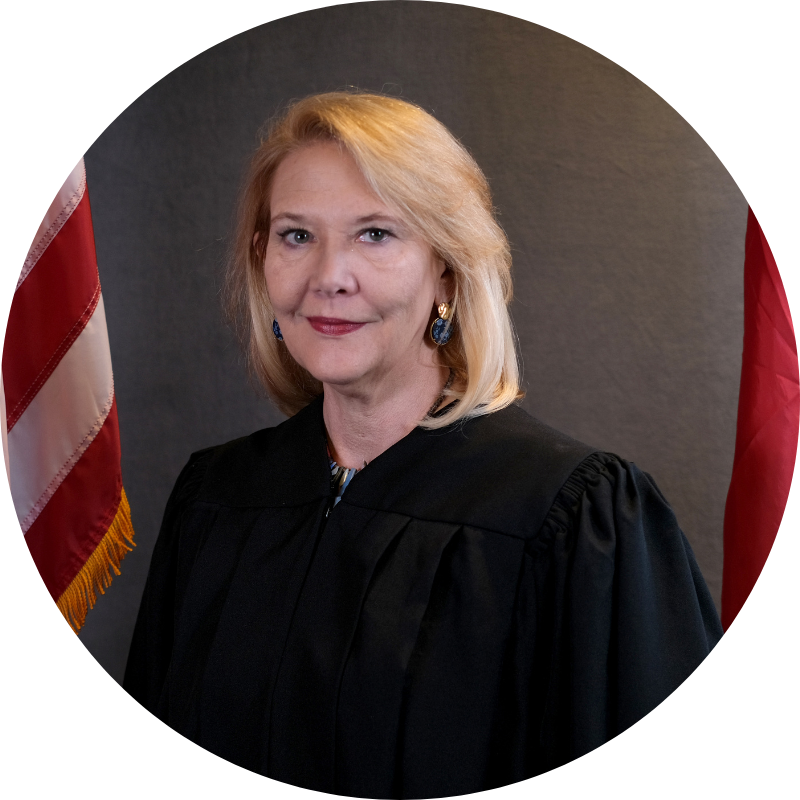November 2023 President's Letter
Written by National Association of Women Judges|November 02, 2023|Monthly Update Archive
 Before I was sworn in as president of NAWJ, I spoke to 15 of my predecessors in this office. Hearing their memories, it was clear that many of them served in a different world. They were often alone in their courthouses or on their panels. They had no forum to discuss the issues they cared about with other women judges. They got together and founded NAWJ to be that forum.
Before I was sworn in as president of NAWJ, I spoke to 15 of my predecessors in this office. Hearing their memories, it was clear that many of them served in a different world. They were often alone in their courthouses or on their panels. They had no forum to discuss the issues they cared about with other women judges. They got together and founded NAWJ to be that forum.
Thankfully, ours is no longer that world. In my jurisdiction in Austin, Texas, women form the overwhelming majority of judges on the District and County Courts at Law and on our Court of Appeals. Austin is an outlier, but this isn’t merely a local trend: women account for 34% of state court judges nationwide. These changes, of course, are welcome and worth celebrating. However, they raise an important question: in a world where we can meet our fellow women judges not by flying cross-country to a conference but by walking down the hall or up the stairs, why is NAWJ still relevant?
As I said, we live in a different world than our founders did 45 years ago, so I did something that our founding sisters couldn’t: I asked this question to ChatGPT, and she had some ideas. Her nine reasons, which she originally presented with a couple sentences’ explanation, included “promoting diversity and inclusion,” “providing support and networking opportunities,” and “responding to evolving legal and social issues.” She wrapped up her answer with a quick summarizing paragraph: “In summary, NAWJ remains relevant today because it continues to address pressing issues related to gender and diversity in the legal profession, advocate for women's rights, and provide a supportive community for women judges. Additionally, it adapts to address new challenges as they arise in the legal field.” In short, she gave an artificial laundry list of tasks that might as well have answered the question, “What does NAWJ do?” But to explain why these tasks are relevant is up to us.
To get to the heart of that issue, let’s go back to our founding sisters. They gave us a mission: “to promote the judicial role of protecting the rights of individuals under the rule of law through strong, committed, diverse judicial leadership; fairness and equality in the courts; and equal access to justice.” Think for a second: every day, when you go into your court, do you see fairness and equality? Do you see equal access to justice?
“Justice for all,” say the last words of the U.S. Pledge of Allegiance, the words emblazoned in gold and marble on our courthouses and over our benches. But do we deliver? Can we deliver? Our world may not be the world of our founding sisters, but the truth remains that if you are rich, or white, or male, the cards are still stacked in your favor. Often, by the time cases come to our courtrooms, there is not much we can do to counteract that. On the bench, we each must follow the law.
But by working together as an organization, we can address these needs—for fairness and equity in our courts, for equal access to justice—which are as urgent today as they were those 45 years ago. Still, while there are many more women on the bench now than there were then, our membership has remained consistent at around 1200 for the past 30 years. We need to grow our numbers, and we can. But how?
First, we need to keep our existing members engaged. This summer, we started quarterly Zoom sessions for new members as a way to learn more about them and tell them more about us. I will continue these. I will also host several “town hall” Zoom meetings during the year for new and current members to get together and share ideas.
Next, we need to support our district directors and our districts. In my year as president, I hope to attend at least one function in each of our 14 districts. I, personally, would love to support your Mentor Jet program, Color of Justice program, or district book club; if you ask me, I will come. Of course, we also need to support our districts financially. We are already applying for public and private grants to fund district-level programming.
Moreover, to truly grow our organization, we need to get the word out about NAWJ to new audiences. In September, I attended the Federal Bar Association’s annual conference. Meeting with their judicial division, I found we had many common concerns, including mentoring law students and supporting women in (and returning from) prison. I will keep reaching out to our sisters on the federal bench and invite them to join NAWJ.
We can’t look only to the federal bench to expand, though. At our annual conference, we passed a long-overdue amendment to our bylaws that will allow our sisters serving in tribal courts to become full voting members of NAWJ. We need to reach out to these judges, long excluded from our organization, to include and welcome Native voices in our ranks.
We also need to collaborate more with other legal and judicial associations. Last year, we reached thousands of lawyers and judges through joint webinars with groups like the American Bar Association and Lawyers for Civil Justice. As president, I will keep these sorts of projects going.
Finally, I would like to announce a new initiative for my presidential year: “Safe at Home.” This initiative encompasses two of my priorities for the coming year. The first is to address intimate partner violence and family violence. These crimes are among the biggest issues holding women back, because if women and children aren’t safe at home, where are they safe? I therefore want to renew our commitment to educating our fellow judges about the unique dynamics of family violence.
The second priority of “Safe at Home” is you: our judges. Recent events have tragically reminded us that we need to focus on judicial security, and I will arrange training events on steps we can take to protect ourselves from physical threats. As judges, our safety also includes our mental health and well-being. Our job is hard, not only intellectually but emotionally. Secondary trauma is real, and we need to be able to rely on this amazing network of sisters called NAWJ to help us through it. I want to be there for you and hope to organize programs on wellness issues.
These are a few of my goals, yet this is your organization. I am here to serve you, but I need your help. So, sign up for a committee. Support your district director. Get active in your district, and tell anyone and everyone that will listen that NAWJ is not only relevant, but more relevant than ever.
Respectfully submitted,
Judge Karen R. Sage
President, NAWJ
